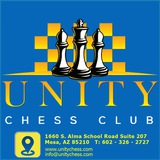🔹 Emanuel Lasker
🔹 German chess player and World Chess Champion
♦️ Emanuel Lasker was a German chess player, mathematician, and philosopher who was World Chess Champion for 27 years. In his prime, Lasker was one of the most dominant champions, and he is still generally regarded as one of the strongest players ever.
▪️ Full name: Emanuel Lasker
▪️ Country: Germany
▪️ Born: December 24, 1868
Berlinchen, Prussia (now Barlinek, Poland)
▪️ Died: January 11, 1941 (aged 72)
New York City, United States
▪️ World Champion: 1894–1921
♦️ Emanuel Lasker was born on December 24, 1868 at Barlinek in Poland, the son of a Jewish cantor. At the age of eleven he was sent to Berlin to study mathematics, where he lived with his brother Berthold, eight years his senior, who taught him how to play chess. According to the website Chessmetrics, Berthold was among the world's top ten players in the early 1890s. To supplement their income Emanuel Lasker played chess and card games for small stakes, especially at the Café Kaiserhof.
♦️ A memorable game by Lasker which one of Immortal games in chess world.
This game a brilliancy game and known "Pillsbury d'oh!" in chessgames.com site, also, it is known "Lasker's Immortal Rooks" game in classical chess !!👇🏼👇🏼
🔸 Harry Nelson Pillsbury vs Emanuel Lasker
🔸 St. Petersburg (1895/96), St. Petersburg RUE, rd 10, Jan-04
🔸 Queen's Gambit Declined: Pseudo-Tarrasch. Primitive Pillsbury Variation (D50)
♦️ Review and download PGN file👇🏼
@unitychess
🔹 German chess player and World Chess Champion
♦️ Emanuel Lasker was a German chess player, mathematician, and philosopher who was World Chess Champion for 27 years. In his prime, Lasker was one of the most dominant champions, and he is still generally regarded as one of the strongest players ever.
▪️ Full name: Emanuel Lasker
▪️ Country: Germany
▪️ Born: December 24, 1868
Berlinchen, Prussia (now Barlinek, Poland)
▪️ Died: January 11, 1941 (aged 72)
New York City, United States
▪️ World Champion: 1894–1921
♦️ Emanuel Lasker was born on December 24, 1868 at Barlinek in Poland, the son of a Jewish cantor. At the age of eleven he was sent to Berlin to study mathematics, where he lived with his brother Berthold, eight years his senior, who taught him how to play chess. According to the website Chessmetrics, Berthold was among the world's top ten players in the early 1890s. To supplement their income Emanuel Lasker played chess and card games for small stakes, especially at the Café Kaiserhof.
♦️ A memorable game by Lasker which one of Immortal games in chess world.
This game a brilliancy game and known "Pillsbury d'oh!" in chessgames.com site, also, it is known "Lasker's Immortal Rooks" game in classical chess !!👇🏼👇🏼
🔸 Harry Nelson Pillsbury vs Emanuel Lasker
🔸 St. Petersburg (1895/96), St. Petersburg RUE, rd 10, Jan-04
🔸 Queen's Gambit Declined: Pseudo-Tarrasch. Primitive Pillsbury Variation (D50)
♦️ Review and download PGN file👇🏼
@unitychess
📘 68...g2?
A painful blunder.
Firouzja could have won the game with 68...e3 69.K×a1 B×c6 -+.
69.K×a1 g1+ 70.Ka2 Qg8 71.Rb7 Qc8 72.Rb8 Q×c6 73.a8=Q Q×a8+ 74.R×a8 e3 75.Re8 e2 =
A painful blunder.
Firouzja could have won the game with 68...e3 69.K×a1 B×c6 -+.
69.K×a1 g1+ 70.Ka2 Qg8 71.Rb7 Qc8 72.Rb8 Q×c6 73.a8=Q Q×a8+ 74.R×a8 e3 75.Re8 e2 =
📘 39.Rc2??
White should have prevented the dangerous 39...Qe3 with the prophylactic move 39.Qc3.
39...Qe3! 40.Qa1 Nf4 41.Rc7 Rd4 42.Rf7 Qe1!+ -+
White should have prevented the dangerous 39...Qe3 with the prophylactic move 39.Qc3.
39...Qe3! 40.Qa1 Nf4 41.Rc7 Rd4 42.Rf7 Qe1!+ -+
📘 An instructive maneuver by Tabatabaei.
19.Nc1!
Transferring the knight to its ideal square on d3.
19...Kb8 20.B×c6! Q×c6 21.Nd3 Bd4 22.Re1 a6 23.h3! Ka7 24.Re2! Qf6 25.a4 +/-
19.Nc1!
Transferring the knight to its ideal square on d3.
19...Kb8 20.B×c6! Q×c6 21.Nd3 Bd4 22.Re1 a6 23.h3! Ka7 24.Re2! Qf6 25.a4 +/-
📘 White has a very good position and Alireza Firouzja wins the game only in 23 moves.
20.d5! Rc8
(20...N×d5 21.B×d5 c×d5 22.Bf4+ Ka8 23.Rc7 +)
21.Bf4+ Ka8 22.d×c6 N×c6 23.Rd1 1-0
If 23...Qh7, then 24.B×c6 b×c6 25.Qb8+ R×b8 26.R×b8#
20.d5! Rc8
(20...N×d5 21.B×d5 c×d5 22.Bf4+ Ka8 23.Rc7 +)
21.Bf4+ Ka8 22.d×c6 N×c6 23.Rd1 1-0
If 23...Qh7, then 24.B×c6 b×c6 25.Qb8+ R×b8 26.R×b8#
📕 12...f5!
Even without White's erroneous response, this would have been useful on many fronts. In particular Black can hope to increase the activity of his bishop pair. 13.e5? Ne6! 14.Bd2 g5! 15.Ne2 c5! 16.Bc3 b5 17.b3 Bb7 18.Ng3 g4-/+.
Even without White's erroneous response, this would have been useful on many fronts. In particular Black can hope to increase the activity of his bishop pair. 13.e5? Ne6! 14.Bd2 g5! 15.Ne2 c5! 16.Bc3 b5 17.b3 Bb7 18.Ng3 g4-/+.
📕 32.g4!
Tal clears the g3-square for his knight. The manner in which he contains Black's king-side aspirations and then organizes the installation of his knight to f5 to reveal his opponent's aggression as primarily weakening is an excellent model. 32...Bd7 33.Rf2 Rf6 34.Kg1 R6f7 35.Nf1 Qd6 36.Ng3 Re8 37.Nf5 Bxf5 38.gxf5-/+
Tal clears the g3-square for his knight. The manner in which he contains Black's king-side aspirations and then organizes the installation of his knight to f5 to reveal his opponent's aggression as primarily weakening is an excellent model. 32...Bd7 33.Rf2 Rf6 34.Kg1 R6f7 35.Nf1 Qd6 36.Ng3 Re8 37.Nf5 Bxf5 38.gxf5-/+
